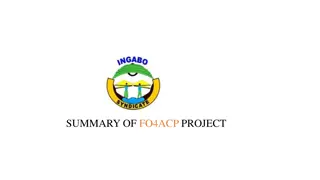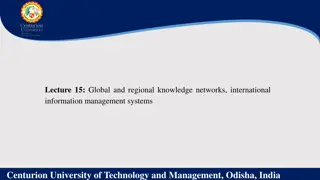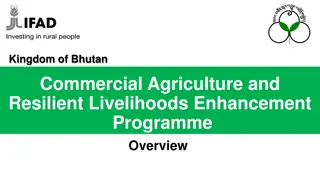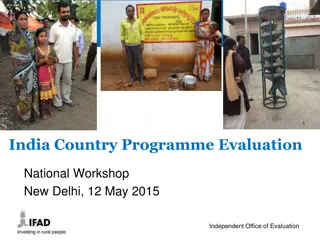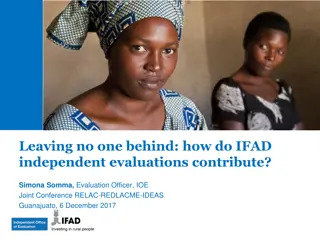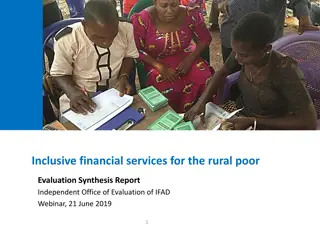Enhancing Livelihoods through FO4ACP Programme
Farmers Organizations for Africa, Caribbean and Pacific (FO4ACP) aims to uplift smallholders and family farmers in various countries by strengthening regional, national, and local farmers organizations. The program components include economic service provision, capacity building, policy influence, a
0 views • 11 slides
Enhancing Agriculture Through Global Knowledge Networks and Information Management Systems
Global and regional knowledge networks play a vital role in agriculture by facilitating information sharing, collaboration, capacity building, and coordination among stakeholders. These networks improve access to information, foster collaboration, enhance capacity building, and strengthen coordinati
0 views • 5 slides
Enhancing Agricultural Resilience and Livelihoods in Bhutan
The Kingdom of Bhutan Commercial Agriculture and Resilient Livelihoods Enhancement Programme (CARLEP) aims to increase smallholder farmers' incomes and reduce poverty through climate-resilient agricultural production. CARLEP builds on IFAD's longstanding partnership with the Royal Government of Bhut
1 views • 19 slides
IFAD-India Partnership: Enhancing Livelihoods and Empowerment
The IFAD-India cooperation has been instrumental in supporting rural development projects since 1979, focusing on empowering tribal communities, smallholder farmers, women, and youth. The evaluation of the country programme highlights the strategic objectives and innovative approaches implemented to
0 views • 21 slides
Enhancing Inclusivity: IFAD Independent Evaluations for Better Targeting
IFAD independent evaluations play a crucial role in ensuring that vulnerable groups are not left behind in rural development initiatives. By assessing the effectiveness of targeting methods, documenting instances where vulnerable groups are excluded, and providing recommendations for improvement, th
0 views • 8 slides
Evaluation Synthesis in Changing Contexts: Enhancing Knowledge for Development Effectiveness
Evaluation synthesis is crucial for promoting learning, reflection, and decision-making in development work. This process involves bringing together diverse knowledge sources to generate strategic insights and facilitate wider use of evaluation findings. The Independent Office of Evaluation of IFAD
0 views • 20 slides
Evaluation Synthesis of Inclusive Financial Services for the Rural Poor
Evaluation synthesis of IFAD's inclusive rural finance initiatives since 2008, focusing on relevance, effectiveness, and impact. Methodology includes desk reviews, country and project evaluations, policy analysis, and practitioner feedback. Highlights IFAD's $3.4 billion rural finance portfolio, the
0 views • 24 slides
